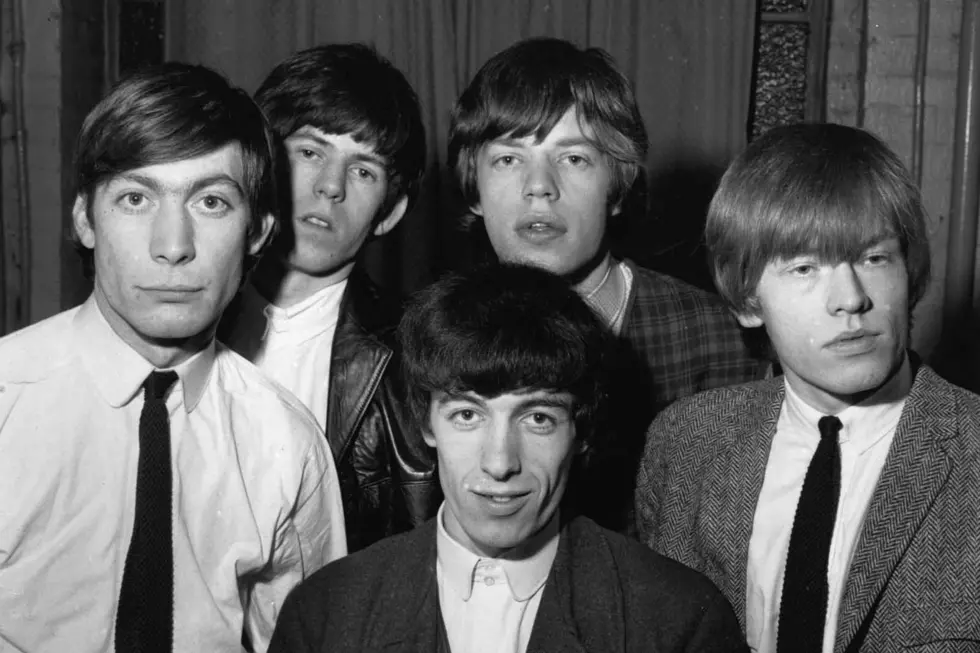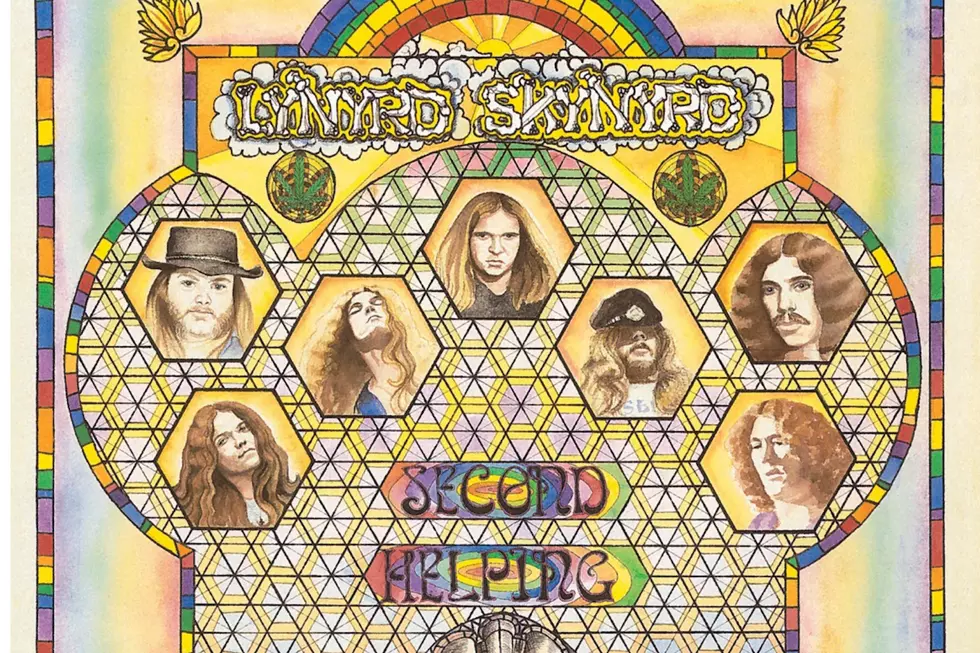
Why AC/DC Had to Add ‘Rock ’n’ Roll Damnation’ to ‘Powerage’
On June 10, 1978, AC/DC enjoyed their first taste of chart success when the single “Rock ’n’ Roll Damnation” reached No. 24 in the U.K. chart. But it wasn’t a cause for celebration for the rising Australian stars – because if they’d had their way, the track would never have been recorded.
Having recently hired bassist Cliff Williams to complete the classic Bon Scott era lineup, they thought they’d completed work on fourth album Powerage. It had been a fun time for Williams. “Albert Studios there in Sydney was a great little rock ’n’ roll room,” he said in 2010. “Just a real fiery, energetic work environment. And we had about three weeks to do it, ‘cause that’s about all the money we had! It was really a tremendous experience.”
It began to be less so when the Atlantic record label revealed weren’t happy. “The delivery of that album wasn’t met with very much enthusiasm at all,” former AC/DC manager Michael Browning sad in 2008 book AC/DC: Maximum Rock ’n’ Roll by Murray Engleheart and Arnaud Durieux. Browning added that the band had created “more of a statement about themselves and credibility and… having something that they were really proud of as musicians.” Meanwhile, the company wanted the record “that was really needed to take it to the next level.”
In Mick Wall’s 2012 book AC/DC: Hell Ain’t a Bad Place To Be, Browning admitted he’d shared Atlantic’s concerns. “It was an important record because the group had achieved a fair bit in England and Europe and needed to get it happening in America,” the manager said. “But I seem to recall feeling very flat about that record… I didn't think it lived up to what we’d hoped for in terms of the record that was going to crack America.”
Brothers Malcolm and Angus Young were instructed to “fix it,” with the hint coming down from on high that they were expected to add a radio-friendly song. “It was one of only two times I ever recall them caving in to Atlantic and saying, ‘All right, we’ll do what you want,’” tour manager Ian Jeffery said.
The result was the deliberately-titled “Rock ’n’ Roll Damnation” – a track that didn’t even feature a guitar solo but did contain hints to its purpose in Scott’s lyrics. Lines include: “They say that you play too loud / Well, baby, that's tough;” “Take a chance while you still got the choice;” and “They’re puttin’ you down / all over town / cause you’re way outta reach / living on the street, you gotta practice what you preach.”
Watch AC/DC’s ‘Rock and Roll Damnation’ Video
"It had a chance of being a great song,,” Jeffery argued, “but when you add in tambourines, maracas and a shuffle, you know… it’s not quite what it's supposed to be.” When the single drew enough attention to have AC/DC appear on flagship British music TV show Top of the Pops and mime to the recording, “they absolutely fucking hated it,” Jeffery said. When the track only achieved “mediocre” success, he added, “they turned round to Atlantic and said, ‘See, you don’t know what you’re fucking talking about, do ya?’”
Still, it had done enough to persuaded Atlantic to keep the faith just a little longer; and that glimmer of hope was useful when Powerage failed to achieve the sales figures that previous LP Let There Be Rock had done, although it was their first gold record in Britain. Eventually it would all pay off with fifth albums Highway to Hell – but the experience of Powerage was a bitter memory for Malcolm Young.
“[T]he record company were starting to push us for hit singles, and we were just digging in our heels and going for it,” he said in 1992. “We gave them ‘Rock ’n’ Roll Damnation,’ though, and that made the charts. These days, some bands are expected to come up with at least eight singles off one album. Pathetic, isn’t it?” Elsewhere he said of the album: “I know a lot of people respect it. A lot of real rock ’n’ roll AC/DC fans, the real pure rock ’n’ roll guys. I think that’s the most underrated album of them all.”
Rock Hall's Worst Band Member Snubs
Was AC/DC’s ‘Flick of the Switch’ Doomed to Fail?
More From Ultimate Classic Rock









